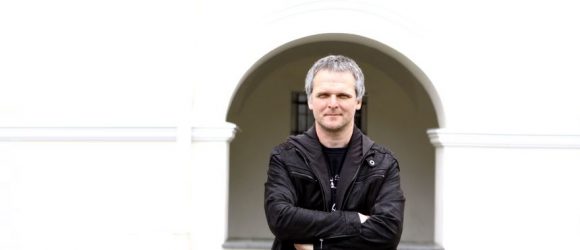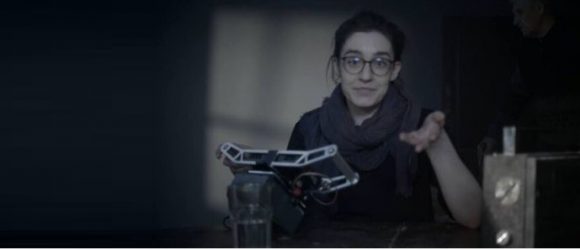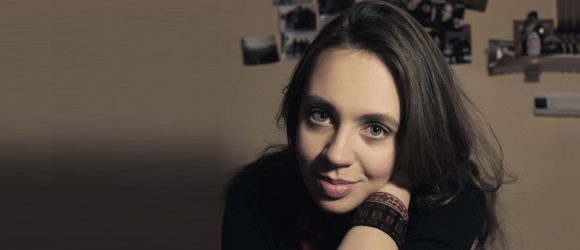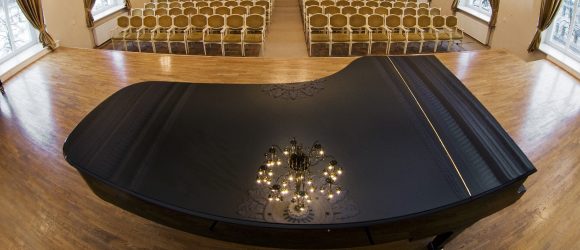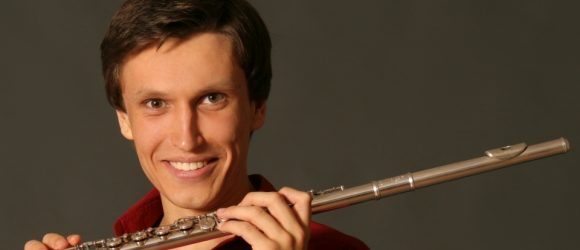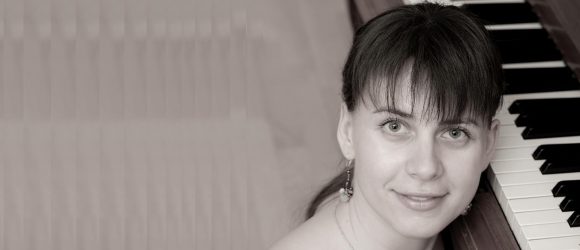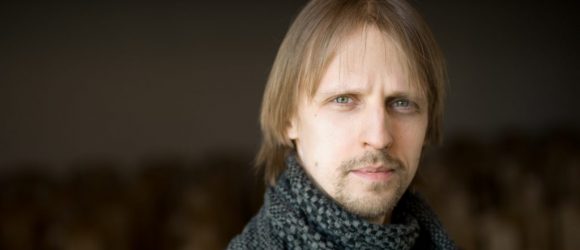Defense of the artistic research project “Interpretation of Primitivism on Piano Music of 20th Century”
- 2021-08-20
- | News
On June 21, 23, 2021, the defense of Vincenzo de Martino “Interpretation of Primitivism in Piano Music of 20th Century” took place at the Lithuanian Academy of Music and Theatre. Artistic Supervisors: Prof. Jurgis Karnavičius, Prof. dr. Lina Navickaitė-Martinelli. Copies of the research paper and its summary are available at the library of the Lithuanian Academy of Music and Theatre (Gedimino pr. 42).
Defense of the artistic part
June 21, Monday, 18:00
LMTA Great Hall (Gedimino pr. 42, Vilnius)
Programme:
F. Mompou. Musica callada: Book I
A. Ginastera. Piano Sonata op. 22 no. 1
F. Mompou. Musica callada: Book II
I. Stravinsky. Three movements from Petrushka
Defense of the research part
June 23, Wednesday, 10:00
LMTA Juozas Karosas Hall (Gedimino pr. 42, Vilnius)
Chairperson of the doctoral thesis defence board:
Prof. ALEKSANDRA ŽVIRBLYTĖ (Lithuanian Academy of Music and Theatre)
Members of the board:
Prof. SERGEJUS OKRUŠKO (Lithuanian Academy of Music and Theatre)
Dr. JULIAN HELLABY (Coventry University)
Abstract
Over the twentieth century, several different art movements emerged in Europe as a reaction to people’s dismay at profound changes in the political and socio-economic balance, scientific and technological progress, and daily life. Among these, Primitivism opposed modernity in favour of a return to a simpler and more people-oriented way of life that Europeans could embrace after having observed the lifestyle and customs of non-Western societies at that time. Composers of art music were not exempt from being captivated by such impressions and began to bring a breath of fresh air to their music by drawing upon the most diverse sources of inspiration originating from very remote geographical backgrounds, thus conferring an incontrovertible exotic aura upon their works. The piano music tradition, firmly anchored to a rather crystalized and canonic paradigm of instrumental expression, eventually absorbed all such stimuli too, by, for instance, revealing the percussive character of the piano and opening itself up to a wider timbral diversification. The present artistic research paper delves into the correlations between the artistic current of Primitivism and the field of piano performance over the twentieth century: the artist-researcher identifies the common characteristics of piano music modelled in a Primitivistic style and the ways they are implemented by the diverse composers whose compositions are attributable to this style, while also examining the most relevant performative aspects of this repertoire.
Defense of the artistic research project “The Landscape in Lithuanian Auteur Documentary Filmmaking: Structuring, Meaning and Developement”
- 2020-12-14
- | News
On December 16-18, 2020, the defense of Audrius Stonys “The Landscape in Lithuanian Auteur Documentary Filmmaking: Structuring, Meaning and Developement” will take place at the Lithuanian Academy of Music and Theatre. Artistic Supervisors: Prof. Arūnas Matelis, Doc. Dr. Lina Kaminskaitė–Jančorienė. Research consultant: Tue Steen Muller. Copies of the research paper and its summary are available at the library of the Lithuanian Academy of Music and Theatre (Gedimino pr. 42).
Online events. For participating please register until December 14 by the e-mail: daiva.buivydiene@lmta.lt.
Defense of the artistic part
December 16, 2020, 6 p.m.
PROGRAM
Documentary “Laiko tiltai” / “Bridges of Time” (2018)
Directors – Audrius Stonys, Kristine Briede
Defense of the research part
December 18, 2020, 10 a.m.
Chairperson of the doctoral thesis defence board:
Prof. Ramūnas Greičius (Lithuanian Academy of Music and Theatre)
Members of the board:
Assoc. Prof. Dr. Giedrė Beinoriūtė (Lithuanian Academy of Music and Theatre)
Sergei Loznica (internationally recognised artist)
Prof. Dr. Aušra Martišiūtė-Linartienė (Lithuanian Academy of Music and Theatre)
Prof. Dr. Natalija Arlauskaitė (Vilnius University)
Reviewers:
Prof. Janina Lapinskaitė(Lithuanian Academy of Music and Theatre)
Assoc. Prof. Dr. Renata Šukaitytė (Lithuanian Academy of Music and Theatre)
Abstract
A historical analysis of Lithuanian auteur documentary demonstrates that the landscape was guarded, documented and used as a space of expression by the filmmakers of the Soviet period of Lithuanian documentary, who were not able to address their viewer in a straightforward and truthful way. Meanwhile, the contemporary globalised world brought new challenges with it; the tendencies of cultural and national unification compel us to yet again look at the landscape as a cinematographic space that carries a unique historical and national memory within.A recurring view expressed by documentary practitioners, that the landscape in the documentary film is secondary and only serves as a background to the story, shows a need to rethink the role of landscape in the creative documentary. Many film directors continue to believe that the landscape is created by the character and any creative intervention that focuses on constructing the landscape or linking it to the dramaturgy of the film somehow contradicts the nature of documentary film.The Lithuanian documentary filmmakers and scholars have an insufficient understanding of the landscape and its significance when creating the film’s dramaturgical structure and meaning. This research paper argues that the landscape, as it appears in Lithuanian poetic documentary film, acquired a wider function: it moved away from its traditional understanding as the action’s background and became an important and meaningful element of cinematic dramaturgy.
Defense of the artistic research project “The Phenomenon of Post-Truth in Film and Theatre: Creative Strategies”
- 2020-12-14
- | News
On December 16-17, 2020, the defense of Živilė Elena Mičiulytė’s “The Phenomenon of Post-Truth in Film and Theatre: Creative Strategies” will take place at the Lithuanian Academy of Music and Theatre. Artistic Supervisors: Prof. Janina Lapinskaitė, Assoc. Prof. Dr. Ramunė Balevičiūtė. Research consultant: Assoc. Prof. Dr. Renata Šukaitytė. Copies of the research paper and its summary are available at the library of the Lithuanian Academy of Music and Theatre (Gedimino pr. 42).
Online events. For participating please register until December 14 by the e-mail: daiva.buivydiene@lmta.lt.
Defense of the artistic part
December 16, 2020, 5 p.m.
PROGRAM
Performance “Paskutinį kartą atnaujinta” (2017, Klaipėda Youth Theatre) / Director and co-author of the play – Živilė Mičiulytė
Documentary “Tiriamieji žurnalistai” (“Film Jam”, premiere in 2021) / Director – Živilė Mičiulytė
Defense of the research part
December 17, 2020, 10 a.m.
Chairperson of the doctoral thesis defence board:
Prof. Ramūnas Greičius (Lithuanian Academy of Music and Theatre)
Members of the board:
Prof. Arūnas Matelis (Lithuanian Academy of Music and Theatre)
Sergei Loznitsa (internationally recognised artist)
Prof. Dr. Aušra Martišiūtė-Linartienė (Lithuanian Academy of Music and Theatre)
Assoc. Prof. Dr. Nerijus Čepulis (Kaunas University of Technology)
Rewievers:
Assoc. Prof. Dr. Nerijus Milerius(Lithuanian Academy of Music and Theatre)
Assoc. Prof. Dr. Lina Kaminskaitė-Jančorienė (Lithuanian Academy of Music and Theatre)
Abstract
Today, the phenomenon of post-truth is widely recognised in the social, political and communication contexts, signalling circumstances where a society tends to believe emotionally charged statements, rather than objectively rendered facts; where people increasingly lean towards alternative facts, especially if they agree with the arguments expressed in these facts, while the arguments that are objective, confirmed and rational – yet do not fit their worldview – are a lot less acceptable. This changing social situation inevitably influences various artistic practices, including the research objects of this thesis: theatre and documentary film. One of the main aims of art has always been to reflect the world that surrounds it. The works of theatre and documentary reflecting on a progressively deepening crisis of truth – the post-truth phenomenon – is no exception. Research object – a multifaceted manifestation of the post-truth phenomenon in the works of theatre and documentary film. This research object is divided into smaller creative strategies of theatre and documentary film that reveal the critical approach of artists towards the post-truth situation, warning about possible dangers and threats of the post-truth era, and that also echo the needs and expectations of the audience living in the post-truth society. These creative strategies are determined whilst analysing the work of other directors and the creative practical process undertaken for this artistic research project – the aforementioned performance (“Last Updated”, 2017) and documentary film (“Investigative journalists”, 2021, forthcoming).
Defense of the artistic research project “Neo-Riemannian Interpretation of Triads and the Perspective of Its Transformations Into a Composing System”
- 2020-12-14
- | News
On December 9-11, 2020, the defense of Raimonda Žiūkaitė’s “Neo-Riemannian Interpretation of Triads and the Perspective of Its Transformations Into a Composing System” will take place at the Lithuanian Academy of Music and Theatre. Artistic Supervisors: Prof. Prof. Dr. Mārtiņš Viļums, Prof. Habil. Dr. Gražina Daunoravičienė. Copies of the research paper and its summary are available at the library of the Lithuanian Academy of Music and Theatre (Gedimino pr. 42).
Online events. For participating please register until December 7 by the e-mail: daiva.buivydiene@lmta.lt.
Defense of the artistic part
December 9, 2020, 6 p.m.
PROGRAM
Raimonda Žiūkaitė. Salz ist mein Erbe (2020)
Raimonda Žiūkaitė. Orbifold (2017)
Raimonda Žiūkaitė. Wormholes of the Mind (2019)
Raimonda Žiūkaitė. Virgo Rosa (2020)
Raimonda Žiūkaitė. 1000 burnų/1000 mouths (2020)
Defense of the research part
December 11, 2020, 10 a.m.
CHAIRPERSON OF THE DOCTORAL THESIS DEFENCE BOARD:
Prof. Mindaugas Urbaitis (Lithuanian Academy of Music and Theatre)
MEMBERS OF THE BOARD:
Assoc. Prof. Dr. Marius Baranauskas (Lithuanian Academy of Music and Theatre)
Prof. Habil. Dr. Wojciech Widłak (Academy of Music in Kraków)
Prof. Dr. Rima Povilionienė (Lithuanian Academy of Music and Theatre)
Prof. Dr. Audronė Žiūraitytė (Lithuanian Academy of Music and Theatre)
REVIEWERS:
Prof. Rytis Mažulis (Lithuanian Academy of Music and Theatre)
Prof. dr. Antanas Kučinskas (Lithuanian Academy of Music and Theatre)
Abstract
The departure point of this artistic research project is a major/minor triad: the primary chord in European music, prevailing in harmony for several centuries and considered as a perfect harmony, a natural phenomenon. After an overview of its historical development and in search of the triad’s usage in contemporary composition, the focus falls on non-functional triadic relations, examined by the Neo-Riemannian theory (NRT). It combines some of the ideas developed by late nineteenth century German theorists, including Riemann, and mathematical tools, intrinsic to mid-twentieth century American music theories (e.g. set theory). NRT formalizes relationships between consonant major and minor triads as mathematical transformations acting on triads, rather than more traditional tonality-based approaches, thus relating triads directly to each other without reference to the tonic and using those transformations to model structural relations in music. Moreover, structural properties of triads are revealed – the realization that the familiar triads of Western music, long valued as ideal acoustic objects, are also due to their internal structure ideal mathematical objects from the perspective of parsimonious voice leading. These generative (algorithmic) properties particularly interests the author of the present research.
However, the most important goal of this research project is to discover compositional resources based on the triads’ group-theoretical properties; to transform analytical system’s insights into a compositional technique. These properties could be used to structure processes not only in the field of harmony, but on rhythm and timbre as well, since the heterogeneity of Neo-Riemannian theory also provides an opportunity for the diversity and flexibility of compositional techniques/approaches. Upon searching for the possibilities of triad functioning in the 21st century musical composition, the concept of triad has been extended from the triad as a harmonic chord in the context of functional harmony to an abstract triad model applied to other musical parameters.
Defense of the artistic research project “. Change in the Tritone Concept and Systemic Constructivism in the 20th Century Compositions”
- 2020-12-14
- | News
On December 9-10, 2020, the defense of Božena Čiurlionienė’s “. Change in the Tritone Concept and Systemic Constructivism in the 20th Century Compositions” will take place at the Lithuanian Academy of Music and Theatre. Artistic Supervisors: Prof. Rytis Mažulis, Prof. Habil. Dr. Gražina Daunoravičienė. Copies of the research paper and its summary are available at the library of the Lithuanian Academy of Music and Theatre (Gedimino pr. 42)
Online events. For participating please register until December 7 by the e-mail: daiva.buivydiene@lmta.lt.
Defense of the artistic part
December 9, 2020, 5 p.m.
PROGRAM
Božena Čiurlionienė. Confessiones (2020)
Božena Čiurlionienė. Time (2019) (Monday, Tuesday, Wednesday, Thursday, Friday, Saturday, Sunday)
Božena Čiurlionienė. Xertz (2018)
Božena Čiurlionienė. Dead End (2019), from the album Automatic Mindr
Defense of the research part
December 10, 2020, 9 a.m.
CHAIRPERSON OF THE DOCTORAL THESIS DEFENCE BOARD:
Prof. Vaclovas Augustinas (Lithuanian Academy of Music and Theatre)
MEMBERS OF THE BOARD:
Prof. Dr. Ričardas Kabelis (Lithuanian Academy of Music and Theatre)
Prof. Habil. Dr. Wojciech Widłak (Academy of Music in Kraków)
Prof. Dr. Rima Povilionienė(Lithuanian Academy of Music and Theatre)
Prof. Dr. Antanas Kučinskas (Lithuanian Academy of Music and Theatre)
REVIEWERS:
Prof. Mindaugas Urbaitis (Lithuanian Academy of Music and Theatre)
Assoc. Prof. Dr. Audra Versekėnaitė-Efthymiou (Lithuanian Academy of Music and Theatre)
Abstract
The object of the research, the tritone, has a very extensive history of change in its concept, which leads to a particularly diverse range of its analysis. Despite a small size of the research object, the tritone is characterised by special tension both of its sound and the related issues. Research aim is to investigate the change in the tritone concept in music theory and compositional practice from the Middle Ages to the late 20th century.
To attain the aim, the following tasks have been set:
1. To analyse the change in the tritone concept in music theory and compositional practice from the medieval tritone prohibition rule mi contra fa diabolus in musica est to its establishment in dissonant intervals and functions in the harmonic system of Classicism;
2. To unfold the extensive evolution of the tritone concept in the harmony and compositional practice of the 20th century employing the context of theoretical and individual compositional systems and the conducted acoustic research;
3. To study the constructiveness of the tritone symmetry phenomenon in the series of the 20th century compositions, harmony, and on the vertical and the diagonal based on the more vivid examples of postwar avant-garde music;
4. To highlight the causes and processes of the loss of tritone relevance in the musical compositions of the second half of the 20th century;
5. To reveal the design and constructive expression of the tritone phenomenon in individual work: the case of Božena Čiurlionienė’s compositions.
The study of change in the tritone concept can be divided into four main stages. The first was prohibition-avoidance, represented by G. Dufay, J. des Prés, J. Obrecht. The second stage was consistent predominance, found in the compositions of C. E. Bach, W. A. Mozart, and L. van Beethoven. The third stage, apotheosis, was illustrated by compositions of F. Liszt, J. M. Hauer, A. Schönberg, A. Webern, L. Nono, P. Boulez, and K. Stockhausen. Loss of relevance as the fourth level was exposed in musical works of Gérard Grisey, H. M. Górecki, and B. Čiurlionienė.
Defense of the artistic research project “Historic Improvisation in the Art of Piano: Preluding, Fantasising and Extemporisation”
- 2020-12-14
- | News
On July 2, 2020, the defense of Mykolas Bazaras “Historic Improvisation in the Art of Piano: Preluding, Fantasising and Extemporisation” will take place at the Lithuanian Academy of Music and Theatre. Artistic Supervisors: Prof. Petras Geniušas, Prof. Habil. Dr. Leonidas Melnikas. Copies of the research paper and its summary are available at the library of the Lithuanian Academy of Music and Theatre (Gedimino pr. 42).
Free entrance.
Defense of the creative part of the artistic doctorate project
July 2, 2020, 10 a.m.
LMTA Building 1: Juozas Karosas Hall (Gedimino Ave. 42, Vilnius)
PROGRAM
F. Schubert – Fantasy in C major op. 15 (Wanderer Fantasy)
R. Schumann – Fantasy in C major op. 17
M. Bazaras – Improvised Preludes
CHAIRPERSON OF THE DOCTORAL THESIS DEFENCE BOARD:
Prof. Rūta Rikterė (Lithuanian Academy of Music and Theatre)
MEMBERS OF THE BOARD:
Prof. Aleksandra Žvirblytė (Lithuanian Academy of Music and Theatre)
Assoc. Prof. Sergej Okruško (Lithuanian Academy of Music and Theatre)
Prof. Dr. Lina Navickaitė-Martinelli (Lithuanian Academy of Music and Theatre)
Prof. Dr. Per Dahl (University of Stavanger)
REVIEWERS:
Assoc. Prof. Daumantas Kirilauskas
Prof. Dr. (hp) Gražina Daunoravičienė
Abstract
This study is aimed at historical improvisation in the art of piano, seeking to reveal the ways of its conception and performance. Research topic is approached by examining little known historical sources, which testify the development of improvisation in Western art music. The concept of historic improvisation is supported by analysis of nineteenth century musical practices, namely: preluding, fantasising and extemporisation. The methodology for this paper is informed by scholarly work found in nowadays ever-expanding field of improvisation.
Interpretation of the structure of improvisational musical language is represented through harmonic and textural analysis, study of galant schemes. Improvisation as a process is demonstrated by using aspects of cognitive models of spontaneous music performance. The methods and models of improvisation distilled during the research are tested in practice by the author of the work. And thus improvisation in living musical practice serves as a driving method for a case study.
The present paper offers unprecedented studies of improvisatory preludes of the nineteenth century, fantasies of the twentieth century pianists, as well it serves as a model for piano improvisation. Arguably the most popular idea that improvisation is something that is performed without preparation, happens immediately by itself, is rebuffed. The proposition is demonstrated by exposing the learning process of improvisation, and by detalising preparation act of spontaneous creation.
Defense of the artistic research project “Piano Cchool of Sulamita Aronovsky: the Continuity of Performance Traditions”
- 2020-12-14
- | News
On July 2, 2020, the defense of Mantautas Katinas “Piano Cchool of Sulamita Aronovsky: the Continuity of Performance Traditions” will take place at the Lithuanian Academy of Music and Theatre. Artistic Supervisors: Prof. Petras Geniušas, Prof. Habil. Dr. Leonidas Melnikas. Copies of the research paper and its summary are available at the library of the Lithuanian Academy of Music and Theatre (Gedimino pr. 42).
Free entrance.
Defense of the creative part of the artistic doctorate project
July 2, 2020, 10 a.m.
LMTA Building 1: Juozas Karosas Hall (Gedimino Ave. 42, Vilnius)
PROGRAM
L. van Beethoven – Sonata no. 17 in D minor, op. 31 no. 2
F. Schubert – Impromptu no. 4 in A-flat minor, op. 90 D. 899
F. Liszt – Sonata in B minor
CHAIRPERSON OF THE DOCTORAL THESIS DEFENCE BOARD:
Prof. Rūta Rikterė (Lithuanian Academy of Music and Theatre)
MEMBERS OF THE BOARD:
Prof. Aleksandra Žvirblytė (Lithuanian Academy of Music and Theatre)
Assoc. Prof. Daumantas Kirilauskas (Lithuanian Academy of Music and Theatre)
Prof. Dr. Audronė Žiūraitytė (Lithuanian Academy of Music and Theatre)
Prof. Dr. Per Dahl (University of Stavanger)
REVIEWERS:
Prof. Sergej Okruško
Prof. Dr. Lina Navickaitė-Martinelli
Abstract
The artistic research looks into the piano performance education principles of Sulamita Aronovsky for the first time. Aronovsky – piano professor at the Royal Academy of Music, the founder and Chair of Jury of the London International Piano Competition, and a noted authority on piano education, was born in Lithuania, where she studied, started her artistic career, taught and lived for more than 30 years. She later moved to the UK, where her professional achievements and success were internationally acknowledged. The content of the piano performance education principles of Aronovsky is reproduced in accordance with the parameters of sound and phrase, performance style, structure of the composition, and performance psychology. Conversations with Aronovsky and eleven interviews with her former students, including such musicians as Vovka Ashkenazy, David Fanning, Ian Fountain etc., support the statement that Aronovsky has preserved the artistic principles of her teachers, especially Alexander Goldenweiser, almost unchanged. That makes her piano pedagogy exceptional, particularly nowadays when national piano schools no longer exist in their previous form. The research confirms the assumption that the effectiveness, integrity and authenticity of Aronovsky’s system of piano performance education provide the basis to call it an individual piano school, which is perhaps one of the purest examples of the continuity of the mid-20th century Russian piano traditions.
Defense of the artistic research project “Somatic Theories and Practices and Their Application to Flute Playing”
- 2020-12-14
- | News
On July 1, 2020, the defense of Vytenis Gurstis “Somatic Theories and Practices and Their Application to Flute Playing” will take place at the Lithuanian Academy of Music and Theatre. Artistic Supervisors: Prof. Valentinas Gelgotas, Prof. Dr. Audronė Žiūraitytė. Copies of the research paper and its summary are available at the library of the Lithuanian Academy of Music and Theatre (Gedimino pr. 42).
Free entrance.
Defense of the creative part of the artistic doctorate project
July 1, 2020, 2 p.m.
LMTA Building 1: Juozas Karosas Hall (Gedimino Ave. 42, Vilnius)
PROGRAM
S. Bach – Sonata fleitai ir klavyrui h-moll, BWV 1030
G. Hue – Fantazija
S. Prokofiev – Sonata fleitai ir fortepijonui, Op. 94
A. Jolivet – Chant de Linos
Soloists:
Gediminas Kviklys, harpsichord
Simona Zajančauskaitė, piano
CHAIRPERSON OF THE DOCTORAL THESIS DEFENCE BOARD:
Prof. dr. Robertas Beinaris (Lithuanian Academy of Music and Theatre)
MEMBERS OF THE BOARD:
Prof. Petras Vyšniauskas (Lithuanian Academy of Music and Theatre)
Prof. Adomas Kontautas (Lithuanian Academy of Music and Theatre)
Prof. Dr. (hp) Gražina Daunoravičienė (Lithuanian Academy of Music and Theatre)
Prof. Dr. Per Dahl (University of Stavanger)
REVIEWERS:
Meno projekto kūrybinės dalies – prof. Algirdas Vizgirda
Meno projekto tiriamosios dalies – prof. dr. Lina Navickaitė-Martinelli
Abstract
Somatics (Greek soma – ‘body’) can be defined as a holistic self-education process, in which a person finds the most optimal way to purposefully move without stress. Somatics encompasses a wide range of disciplines, often overlapping with medicine, physical therapy, physiology, as well as consciousness-based practices, such as yoga, meditation, Tai chi etc. This artistic research paper focuses on the connection of mind and thinking with the performer’s physiology. Although called “transverse”, the flute is actually held obliquely, with the head slightly turned to the left, therefore for flutists, whose posture is asymmetrical, developing a thorough understanding of complex connections between various parts of the body and the various processes involved, is of paramount importance. The aim of the research is to develop a flute playing methodology based on the latest somatic theories and practices, which would provide performers with a wide range of means to improve and to find the most suitable individual way to move, to efficiently acquire new skills, and to achieve maximum artistic results.
Defense of the artistic research project “Recomposition of Henry Purcell‘s Music and Realisation of his Creative Principles in Benjamin Britten‘s Vocal Cycles”
- 2020-12-14
- | News
On July 1, 2020, the defense of Giedrė Muralytė’s-Eriksonė artistic doctorate project “Recomposition of Henry Purcell‘s Music and Realisation of his Creative Principles in Benjamin Britten‘s Vocal Cycles” will take place at the Lithuanian Academy of Music and Theatre. Artistic Supervisors: Prof. Irena Uss-Armonienė, Assoc. Prof. Dr. Laima Budzinauskienė. Copies of the research paper and its summary are available at the library of the Lithuanian Academy of Music and Theatre (Gedimino pr. 42).
Free entrance.
Defense of the creative part of the artistic doctorate project
July 1, 2020, 10 a.m.
LMTA Building 1: Juozas Karosas Hall (Gedimino Ave. 42, Vilnius)
PROGRAM
Henry Purcell. Songs from Orpheus Britannicus
Benjamin Britten. English, Ireland and French Songs
Henry Purcell. Sonata for Violin and Clavier in G minor
Benjamin Britten-Henry Purcell. Realisations from Orpheus Britannicus
Benjamin Britten. Songs from Sechs Hölderlin – Fragmente op. 61 (lyrics by F. Hölderlin)
Benjamin Britten. Cycle for Voice and Piano Winter Words op. 52 (lyrics by T. Hardy)
Benjamin Britten-Henry Purcell. Duet from Sound of the Trumpet
Soloists:
Laura Latvaitytė-Zaman (soprano)
Romanas Kudriašovas (baritone)
Viktorija Zabrodaitė (flute)
CHAIRPERSON OF THE DOCTORAL THESIS DEFENCE BOARD:
Prof. Donatas Katkus (Lithuanian Academy of Music and Theatre)
MEMBERS OF THE BOARD:
Prof. Nijolė Ralytė (Lithuanian Academy of Music and Theatre)
Prof. Audronė Kisieliūtė (Lithuanian Academy of Music and Theatre)
Prof. Dr. Rūta Stanevičiūtė-Kelmickienė (Lithuanian Academy of Music and Theatre)
Prof. Dr. Martin Boiko (Jāzeps Vītols Latvian Academy of Music)
REVIEWERS:
Dr. Eglė Kižytė-Ramonienė
Prof. dr. Audronė Žiūraitytė
Abstract
The aim of the Giedrės Muralytės-Eriksonės artistic research project is, upon the analysis of Britten-Purcell realisations, to reveal the various influences of Purcell on Britten’s cycles for voice and piano as well as the impact of the realisations on Britten’s original cycles for voice and piano. Based on comparison with the concept of recomposition, the semantics of the term of realisation was explored and justified its applicability to Britten’s works to identify the influence of the said phenomenon on Britten’s original cycles for voice and piano. To relate the theories of microthematicism and intertextuality and to apply them to the analysis of Britten-Purcell songs from the collection Orpheus Britannicus as well as of Britten’s cycles for voice and piano Winter Words Op. 52 and Sechs Hölderlin-Fragmente Op. 61. The project also aims to relate the concept of interpretation to the overall architectonics of the composition and to draft interpretation guidelines, based on the theory of microthematicism, which could be useful for performers.
Defense of the artistic research project “Structural principles and composing strategies of symphony and gamelan orchestras”
- 2020-12-14
- | News
On June 29, 2020, the defense of Marius Baranauskas artistic doctorate project “Structural principles and composing strategies of symphony and gamelan orchestras” will take place at the Lithuanian Academy of Music and Theatre. Artistic Supervisors: Assoc. Prof. Dr. Mārtiņš Viļums, Prof. Dr. Rimantas Janeliauskas. Copies of the research paper and its summary are available at the library of the Lithuanian Academy of Music and Theatre (Gedimino pr. 42).
Free entrance.
Defense of the creative part of the artistic doctorate project
June 29, 2020, 11 a.m.
LMTA Building 1: Juozas Karosas Hall (Gedimino Ave. 42, Vilnius)
PROGRAM
Marius Baranauskas –
Trapezium
3 Palaiminimai
Palaiminimai
Delta Cephei t
Alrediph
CHAIRPERSON OF THE DOCTORAL THESIS DEFENCE BOARD:
Prof. Dr. Ričardas Kabelis (Lithuanian Academy of Music and Theatre)
MEMBERS OF THE BOARD:
Prof. Mindaugas Urbaitis (Lithuanian Academy of Music and Theatre)
Prof. Vaclovas Augustinas (Lithuanian Academy of Music and Theatre)
Prof. Dr. Rima Povilionienė (Lithuanian Academy of Music and Theatre)
Prof. Dr. Martin Boiko (Jāzeps Vītols Latvian Academy of Music)
REVIEWERS:
Prof. Rytis Mažulis
Prof. Dr. Antanas Kučinskas
Abstract
The artistic research paper “Structural Principles and Composing Strategies of Symphony and Gamelan Orchestras” by Marius Baranauskas reveals the main principles of orchestra as a comprehensive structure and the inherent strategies of orchestral music composition. By highlighting structural principles of the two different music cultures – European symphony orchestra and Indonesian gamelan – the thesis discovers possible interplay between them. This leads towards establishing shared meeting points between the orchestral thinking of the two different cultures, adapting compositional practices and specifying the orchestral criteria. The hypothesis of this research states that there is a universal system of orchestral structure and orchestras of different types and cultures can be defined according to this system. As a result, despite the difference between European and gamelan orchestras, this structural basis makes an effective compositional interplay between them possible. The research delineates the main structural elements of orchestra, creates a comprehensive model of orchestral structure. On the basis of this model the dissemination of structural elements in symphonic and gamelan music is analyzed, and the most notable types of orchestra and structural principles of composition are distinguished. The research paper also reveals the interplay possibilities between the chosen orchestras and, using the author’s composition Alrediph as an example, demonstrates the compositional aspect of the interplay between structural elements.



